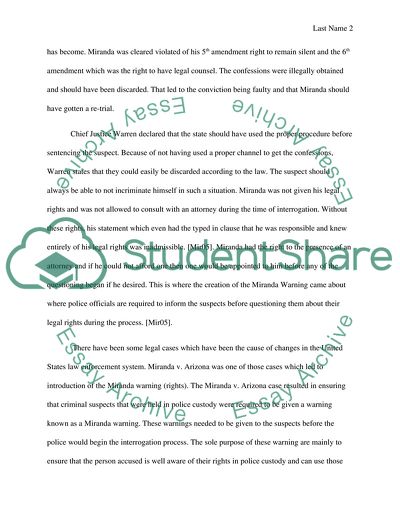Cite this document
(Miranda v. Arizona 1966 Term Paper Example | Topics and Well Written Essays - 1500 words, n.d.)
Miranda v. Arizona 1966 Term Paper Example | Topics and Well Written Essays - 1500 words. Retrieved from https://studentshare.org/law/1762168-miranda-v-arizona-1966
Miranda v. Arizona 1966 Term Paper Example | Topics and Well Written Essays - 1500 words. Retrieved from https://studentshare.org/law/1762168-miranda-v-arizona-1966
(Miranda V. Arizona 1966 Term Paper Example | Topics and Well Written Essays - 1500 Words)
Miranda V. Arizona 1966 Term Paper Example | Topics and Well Written Essays - 1500 Words. https://studentshare.org/law/1762168-miranda-v-arizona-1966.
Miranda V. Arizona 1966 Term Paper Example | Topics and Well Written Essays - 1500 Words. https://studentshare.org/law/1762168-miranda-v-arizona-1966.
“Miranda V. Arizona 1966 Term Paper Example | Topics and Well Written Essays - 1500 Words”, n.d. https://studentshare.org/law/1762168-miranda-v-arizona-1966.


